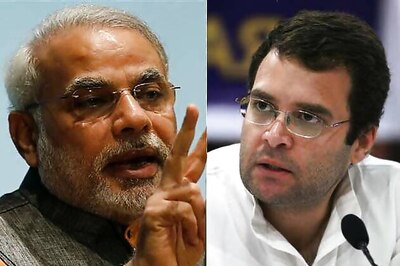
views
Life seemed promising to 26-year-old Shubham, a Mumbai-based freelance cinematographer, who had been shooting travel and fashion videos for nearly four years. But the global pandemic forced him to shut two major ongoing projects and come back to his family home in Uttar Pradesh’s Ghaziabad. Now struggling to find steady work and envision a future for himself, Shubham lately observed increased instances of overthinking, stress and anxiety. “Sometimes I don’t feel like working for days. I have lost the productivity I used to have,” he said.
Shubham is one of the thousands who have lost their jobs amid the Covid-19 crisis, leading to bouts of stress and anxiety and leaving many young people vulnerable for the future. A slightly improved situation got worse, however, during the second Covid wave. “Finally after a year, when things were getting better, we were once again pushed back to square one,” he added.
Covid-19 and mental health
Covid-19’s impact on mental health remains one of the least-discussed and least-addressed aspects of the ongoing crisis. The pandemic, which has been mentally and emotionally exhausting, has exacerbated India’s hidden mental health epidemic. Several studies have shown that currently, we are facing “the greatest threat to mental health since the second world war” and a potential tsunami of psychological issues that will hit the masses in the coming months and years.
The pandemic-induced isolation, unemployment and financial desolation are likely to have contributed significantly to lower cognitive wellness. India is ranked 139 out of 149 countries in the latest happiness index. Not only does India lacks adequate infrastructure for mental illnesses but the stigma attached to mental health worsens the crisis.
Currently, more than 65% of people aged 18-24 in India suffer from depression. The International Labor Organisation (ILO) has already said that if we don’t take timely action to stem the mental health crisis, India’s youth may suffer severe and long-term effects that will dent their productivity, and, in turn, the nation’s economy.
Support groups
Many support groups, or in layman’s language self-help groups, which are led by trained mental health professionals, psychologists or social workers that believe in collective healing, have surfaced online.
It’s not only government-supported mental health helplines that have been active during the pandemic, but several private hospitals, psychologists and psychiatrists have been at the forefront of this war.
“Amid the pandemic, people have been exposed to unexpected stress and anxiety, leading to isolation and the constant worry of the current situation as well as of the future. All this is clubbed with the fear of catching the deadly virus and its repercussions. The uncertainty and lack of control on the situation has been a prime reason of emotional distress across the population regardless of age,” said Srimoyee Roy, a Bengaluru-based counselling psychologist.
The pandemic made people stop and think about prioritising mental health, she said. “Support groups have been helping people in providing a safe space for individuals to share, connect and listen and know that they are not alone in this. I believe there is a lot of power in group healing. There are still some inhibitions in India in seeking one-on-one therapy. However, support groups can bridge that gap. It’s definitely the need of the hour,” she added.
The lockdown also has led to a mushrooming of online support groups for people coping with alcoholism, isolation, anxiety and depression. And amid the overwhelmed mental health infrastructure, these groups have proven to be substantial support.
“The lockdown was a heavy period for all of us. Even though I never had any severe anxiety issues, I started developing them. However, in my experience, personal therapy never benefitted me like my online support group. During that one hour of the week, we all discuss our schedules, our issues and possible solutions to common problems. I would recommend it to everyone,” said Surbhi, an IT professional and participant in an Instagram-based mental health support group.
Why group therapy is more comforting and beneficial
Group therapy is loosely defined as having more than one participant in a therapist’s session; however, the size of the gathering can vary depending on the type of group therapy being employed. For example, couples therapy, a type of group therapy that typically treats romantic partners, consists of two clients (most often), while substance abuse groups may feature 10-12 clients in a session.
The American Psychological Association states that researchers who study the effectiveness of group therapy generally recommend that the ideal maximum number of clients in a group is somewhere between 6 and 12.
Support or group therapy sessions ensure that individuals are not alone and that other individuals share similar problems and struggles. Famous psychiatrist Dr Irvin David Yalom terms this the “principle of universality”. Experts also say that the therapeutic alliance that occurs in groups is broader than the alliance that occurs in individual therapy. This allows for the incorporation of many different points of view.
“I had never tried group therapy, but it has proven to be beneficial, as it gives you a comforting feeling and makes you believe that you are not alone in the battle,” Shubham added.
Read all the Latest News, Breaking News and Coronavirus News here.


















Comments
0 comment